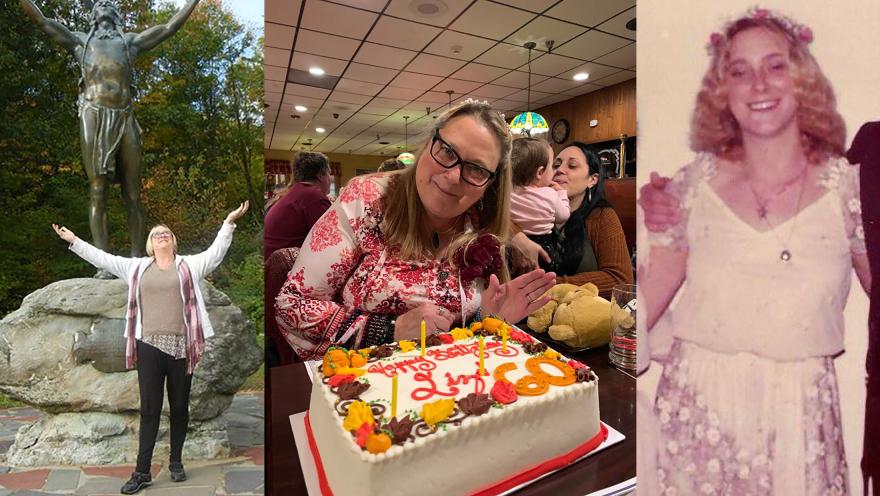In summer 2014, as the ALS Ice Bucket Challenge was raising unprecedented awareness and funds for the fight against the disease, Liz Murray did not know that she was about to become part of the ALS community. Her diagnosis was confirmed later that year.
Liz spent her career as a nurse in a VA clinic where she cared for numerous ALS patients over the years. She says the experience informed her suspicion that her symptoms were consistent with the disease even before her diagnosis was confirmed.
“It was a very arduous, difficult, and emotional time,” she said. “I argued with many doctors and neurologists who wanted to diagnose me with MS, Lyme disease, lupus, you name it. Even strokes.” Even after Liz asked to see a neurologist who specializes in ALS, her diagnosis took two years of testing.
“The feelings that you get during that time – the funny sensations that your body, the messages that your body's giving you – you begin to become paranoid and wonder, ‘Did I just sit too long and my leg fell asleep? Or is this a sign?’ To go through that for a year or two, it takes a lot from your caregivers and friends to get you through that period,” she said.
Liz says the hardest part of getting the diagnosis was the realization that there is no medical plan that leads to recovery. Her husband, Tom, is Liz’s primary caregiver. She says the initial diagnosis put stress on their marriage as they struggled both individually and collectively with denial and acceptance.
“We both came through in different points,” she said. They attended the ALS Association’s annual Advocacy Conference in 2018, something she says was a breakthrough moment in terms of acceptance and moving forward, just seeing and interacting with other people with ALS and their caregivers.
“We had awful financial problems in the beginning. I lost my job as a nurse, so I had to go on disability, which was a huge cut in our income; and yet I needed a ramp put in in order for me to get into my home,” she said. They also modified the house to make day-to-day living easier as Liz’s disease progressed.
One of the challenges Liz says she rises to every day is to raise awareness of ALS and to help people overcome the fear and discomfort they feel when interacting with a person who has ALS.
“I lost a lot of friends in the beginning because some people can't emotionally handle being friends with someone that is going through this and they can't watch, and they – they just disappear,” she said.
She wants people to understand that she has come to a deeper appreciation of the quality of life through her ALS journey. “We enjoy every single day to the best, to the max. And so, the friends that I do have are quality friends that will do anything with me,” she said. Things like helping Liz participate in a drum circle.
“I have groups of women that we do drumming together, and we volunteer at different events and we drum. They help me get there and they help me to drum, and with whatever way that I can, they help me to drum. So, these are the important things that you look forward to,” she said.
Liz also maintains what she calls her bucket challenges. “Some of them are going on my first boat ride – never been on a boat. Some of them are things like traveling places that I've never traveled to before, or getting on a pair of roller skates and just having someone stand me on them, because I've never worn roller skates before. These are the things that friends help you with that are my personal challenge,” she said.
Beyond her personal bucket challenges, Liz wants to use her voice and her story to raise awareness of the disease. “I'm not shy about telling people what I have. I think it's important, and it's important for them to understand what it is and how important research is for it,” she said.
Having spent a career in nursing, Liz says nothing is more devastating than an ALS diagnosis. “It's like having the rug pulled out from under you and then floating in midair and never landing so that you can't even plan on a course of action. You just literally have to go day by day, not knowing if tomorrow I will be able to talk or walk. That's the hardest thing about this disease,” she said.
So instead, Liz tries to look at every day, and every friend and loved one, as a gift. “You got to take every day with grace and dignity, and really appreciate everybody who's willing to be in your life, willing to work with your disability, and work with your challenge, your physical challenges, in order for you to enjoy things.”


Join the conversation. Please comment below.